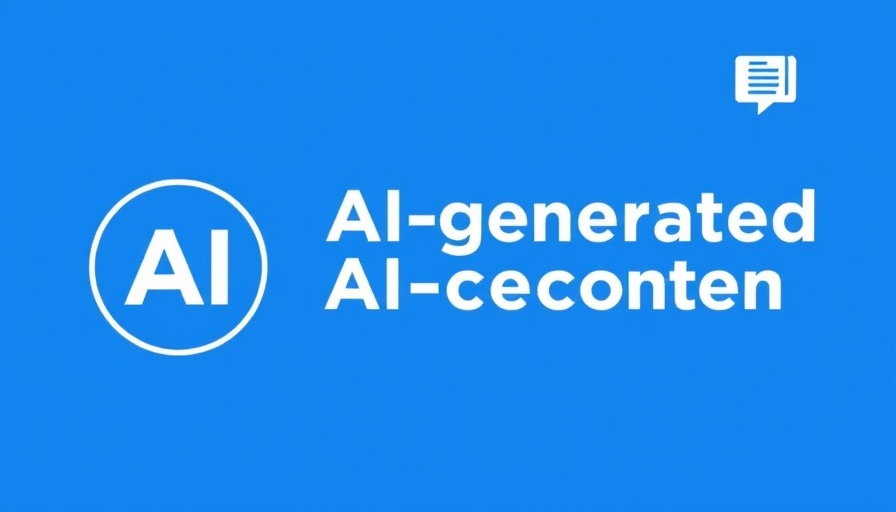
The Rise of AI-Generated Content: A New Era for Search Results
The landscape of digital marketing is evolving at breakneck speed, and one of the most significant changes is the infusion of AI-generated content within search results. Recent studies indicate that Google’s AI Overviews are citing AI-generated sources more frequently than their human counterparts. This trend raises a pivotal question for online marketers and SEO strategists: Is your content just a whisper in the fast-evolving world of AI?
Understanding AI Content Citations
According to recent research involving one million SERPs analyzed via Ahrefs Keywords Explorer, a staggering 87.8% of AI Overviews cite pages that blend both AI and human contributions. When it comes to pure AI content, it accounts for only 3.6% of the citations, while pure human content stands at 8.6%. This suggests that even as content creators lean toward AI for assistance, the blend creates a robust feedback loop that can seem cyclical—where AI-generated content is reinforcing other AI-generated content.
What's Shocking About These Findings?
When taking a glance back at previous studies showing the general distribution of AI content across the web—where only 2.5% of pages were categorized as pure AI and 25.8% as pure human—there is an evident disparity. It seems that Google’s AI Overviews might exhibit a distinct bias towards AI-generated or AI-assisted content compared to the broader spectrum present on the internet. Could it be that Google is favoring a new standard driven by the volume of AI content produced in our current digital landscape?
Creating a Feedback Loop: AI Citing AI
As noted in the insights, the relationship between AI-generated content and citations is becoming akin to a self-policing mechanism—a sort of ecosystem where AI-generated materials enhance their visibility. This isn’t merely conjecture; our data illustrated a correlation of just 0.017 between the percentage of AI content and its citation order on AI Overviews, indicating that the appearance of AI-generated content does not directly lead to penalties or honors in Google’s selection process.
The Implications for SEO Marketers and Business Professionals
For online marketers, this revelation is both fascinating and troubling. As more content creators integrate AI technologies into their workflows, understanding how Google interprets this blend becomes crucial. Marketers must continue to leverage AI for efficient content creation, but also remain mindful of balancing this with high-quality human input to ensure their messages resonate with target audiences and stand out amid AI saturation.
Future Predictions: AI’s Role in Search Engines
The rise of AI in the marketing realm suggests a future where traditional SEO strategies may need to adapt rapidly. Considering that 74% of new webpages incorporate some form of AI-generated content, the trend isn’t a fleeting fad; it’s here to stay. Understanding how to navigate this landscape will require marketers to be nimble and innovative.
Actionable Insights for Navigating AI in Marketing
- Blend Human Touch with AI Efficiency: Strive for a harmonious balance rather than exclusively relying on either side. Your content’s authenticity might become its standout feature.
- Embrace AI Tools Wisely: Use AI for insights but retain your voice in the narrative—this will help in distinguishing your brand.
- Monitor Trends Relentlessly: Trends shift, and what works now might not be effective next year. Stay engaged with ongoing research and adapt.
Conclusion: The AI Content Landscape is Here to Stay
As AI continues to redefine the content creation and distribution model, marketers cannot afford to be passive. Embrace the integration of AI tools while staying cognizant of the human element that brings authenticity and connection to your messaging. Keep abreast of the trends, test new strategies, and be ready to pivot as the landscape evolves.
Ultimately, the future of AI in marketing is a joint venture between technology and human creativity. So, buckle up, it’s going to be an exhilarating ride!
 Add Row
Add Row  Add
Add 




Write A Comment